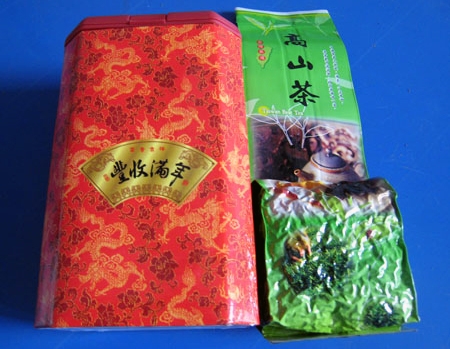How Taiwanese
businesses make price transferring in
In

Beginning its business in
The other 17 tea businesses in Lam
Dong province have also been named by the provincial taxation body as the
enterprises with huge and abnormal losses.
Taiwan Tea Company, which has the
registered investment capital of VND10.42 billion, had reported the loss of
VND17.7 billion by 2009. Kinh Lo Tea Company, which has the initial capital
of VND26.9 billion, incurred the loss of VND56.8 billion after four years of
operation, King Wan Chen with VND29 billion in investment capital incurred
the loss of VND38.3 billion.
Reasoning the loss, the Taiwanese tea
enterprises in Lam Dong only paid VND272 million in the corporate income tax
for five years. Meanwhile, the state owned tea processing enterprises in the
locality paid VND13.2 billion in tax and private enterprises paid VND21
billion.
Under the current regulations,
exports enjoy the preferential VAT rate of zero percent and tax refund.
Domestic state owned and private
enterprises got VND5 billion in tax refund. Meanwhile, Taiwanese enterprises
got VND21.6 billion in tax refund. Meanwhile, domestic state owned and
private enterprises got VND5 billion in tax refund. They also enjoyed a lot
of investment incentives, including the land tax exemption.
Taxation officials said in principle,
the businesses which incur such huge losses will not be able to exist.
Meanwhile, the enterprises still can live well.
Where did the enterprises find
capital to maintain their operation? The answer from the enterprises is that
they get the financial support from the parent companies.
The Taiwan Tea Company, for example,
incurred the loss of VND17 billion, but it could borrow VND28 billion from
the holding company. The Kinh Lo Tea Company also borrowed VND27 billion to
offset the VND26 billion loss, while King Wan Chen borrowed VND12 billion.
In 2011, the Dak Nong provincial tax
body found the surprising business result of Pagoda Company Ltd, a 100
percent Malaysian invested enterprise. It processed groundnuts for export to
the holding company in
In 2006, Pagoda came to
However, inspectors have found out
that the companies did not incur loss as they reported.
The Taiwanese tea companies, in fact,
made profit right in the first year of doing business in
The enterprises “fabricated” the
figures about the input material import price, export price and relating
expenses to make the reported production costs higher than the real costs.
With the reported high production
costs and low selling prices, the enterprises reported loss and evaded tax.
Meanwhile, the holding companies in
Pham Huyen,
|
Chủ Nhật, 27 tháng 10, 2013
Đăng ký:
Đăng Nhận xét (Atom)
Không có nhận xét nào:
Đăng nhận xét